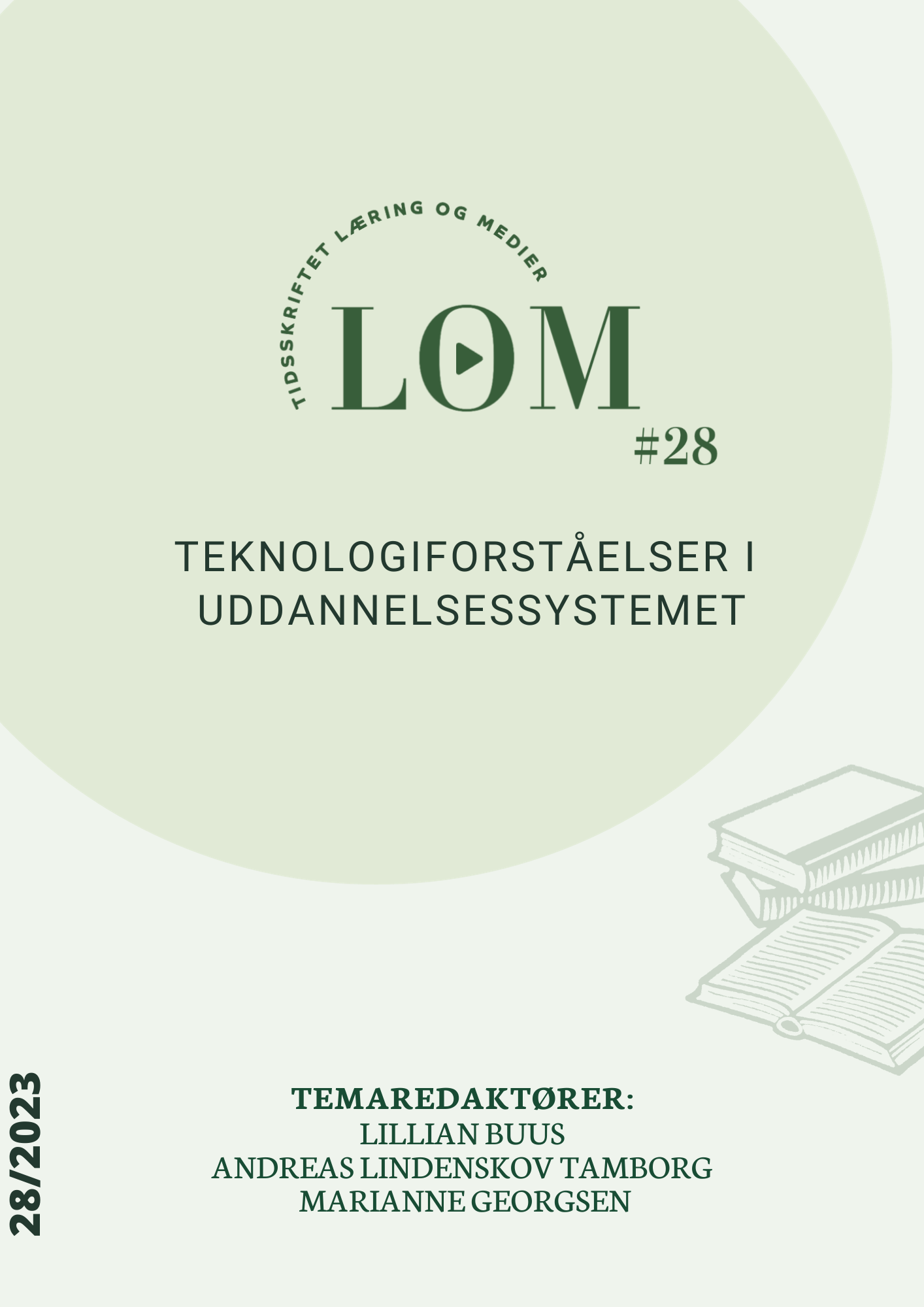Årg. 16 Nr. 28 (2023): Teknologiforståelser i uddannelsessystemet

Redaktør: Lillian Buus, libu@via.dk, VIA University College
Redaktør: Andreas Lindenskov Tamborg, andreas_tamborg@ind.ku.dk, Københavns Universitet
Redaktør: Marianne Georgsen, mage@ucn.dk, Professionshøjskolen UCN
I en dansk kontekst bruger vi ofte termen teknologiforståelse som benævnelse for den faglighed, der er udviklet og skal udvikles for at give uddannelsesmæssige svar på nogle af de udfordringer, den digitale udvikling skaber. Det vedrører både borgeres deltagelsesmuligheder i et i stigende grad digitaliseret samfund, arbejdstageres kompetencer til at indgå i jobfunktioner i et digitaliseret arbejdsmarked, og derudover et muligt behov for indholdsudvikling af uddannelser og curriculum. I de senere år har der været tiltagende interesse for teknologiforståelse som faglighed på tværs af stort set alle niveauer i det danske uddannelsessystem; i dagtilbud, grundskole, gymnasiale uddannelser, erhvervsuddannelser samt videregående uddannelser. Det er denne særlige faglighed og dens udvikling, der er det ene tema i dette call. Det andet tema er den organisatoriske kapacitetsudvikling, som netop denne eller disse fremvoksende faglighed(er) påberåber sig. Begge temaer kan adresseres i de bidrag, som vi gerne vil have til dette nummer, ligesom bidragene samlet set kan belyse, i hvilket omfang fagligheden og kapacitetsopbygningen kan forstås uafhængigt af hinanden (eller ikke).
Fremkomsten af teknologiforståelsesfagligheder og begreber i uddannelsessektoren har givet anledning til en voksende forskningsmæssig interesse for teknologiforståelse, der bl.a. kommer til udtryk gennem særnumre med fokus på teknologiforståelse i tidsskrifterne Unge Pædagoger, Learning Tech og Studier i Læreruddannelse og Profession. Det har ledt til forskning i en lang række fænomener, problematikker og udfordringer relateret til analyser og diskussioner af nye teknologiforståelsesfagligheder, som de er beskrevet i styredokumenter, deres optræden i læremidler, samt deres rolle i videregående uddannelse, ungdomsuddannelse og erhvervsuddannelse. Fælles for disse væsentlige bidrag er, at de ofte zoomer ind på teknologiforståelser, som de praktiseres i en bestemt uddannelsesmæssig eller fagfaglig kontekst.
Der er også inden for de seneste år foretaget en række uddannelsesmæssige udviklinger af fag, fagligheder og kapacitetsopbygning ift. teknologiforståelse. Her kan nævnes TEK-forsøget på grundskoleniveau, informatikfaget på STX, udviklingen af TEKU-modellen ift. udvalgte professionsuddannelser, Teknosofikum-projektet på universitetsniveau.

